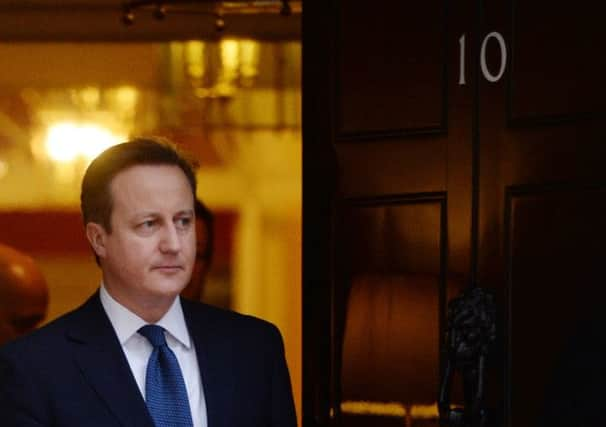Leaders: Miliband pounces on bankers’ bonuses


The Labour leader, initially dismissed by detractors as a policy wonk out of touch with the concerns of real people, has revealed himself as a man capable of tapping into the most populist of public concerns. And if he struck a chord with the public mood on the cost of living, he is certainly in tune with voter discontent by turning his focus on the banks.
David Cameron and his government have, it seems, stumbled into a trap. Westminster ministers have complained to the European Union about new Brussels legislation that looks likely to limit bankers’ bonuses. With that opposition now on record, Labour has sniffed out what it believes to be a major political opportunity. Mr Cameron has nowhere to hide on this issue. The proposed legislation allows banks to double the size of permitted bonuses upon the agreement of shareholders. And, of course, the majority shareholder in Royal Bank of Scotland is the government, on behalf of the taxpayer.
Advertisement
Hide AdAdvertisement
Hide AdSo, will the Prime Minister exercise this power, or won’t he?
The objection to a legal cap on bonuses is well-established. Our banks, the argument goes, and especially banks such as RBS requiring smart management to turn them round and make them fit for a renewed purpose, need the top class of manager. Cap the bonuses and the smartest, who are incredibly mobile in a global marketplace, will go elsewhere.
But that argument becomes less convincing the more broadly the cap is applied. And a European-wide cap would be very broad indeed. Will the financial districts of London, Paris, Frankfurt and Edinburgh suddenly empty themselves overnight? We think this unlikely. Most lay people are not adverse to clever people being paid a lot of money for a job that requires rare skill and expertise. What they object to is a bonus culture that seems to operate regardless of results or contribution to the greater good.
It has long been a source of public frustration that ministers have not used their power within RBS to bring about a radical culture change in how it operates.
While in public ownership, RBS has still come under fire for its record on lending to small businesses, and a string of embarrassing scandals that demonstrated the old banking culture still holds sway.
Yesterday, Mr Cameron insisted RBS cash bonuses would be capped at £2,000, and he promised to veto increases in the overall RBS pay bill.
But Labour is unlikely to let him off the hook on this one. Mr Miliband has the Prime Minister on the back foot on an issue that matters to the voters, and not for the first time.
Chillax ... video games are educational
ARE no parental prejudices safe? For years mums and dads have been made to feel guilty for every moment they allowed their offspring to sit in front of the TV, the video, or the computer games console. Parents have been endlessly warned by experts in behavioural science that they were destroying their sons’ and daughters’ attention spans, social skills, moral fibre and literacy.
Advertisement
Hide AdAdvertisement
Hide AdNow it seems that at least one of these beliefs is wrong. As we report today, researchers are now saying that films and computer games based on books may be encouraging children to read. The goggle-box may not, after all, be the instrument of the Devil.
What next? Will scientists soon tell us that an untidy room is the sign of an ordered mind? That teenagers’ allergy to emptying the dishwasher is a demonstration of admirable strength of willpower? And, when they finally leave home to go to college or university, that their inability to phone home is proof that they love us?
The truth is that there is rarely an innovation in the entertainment industry that has not, in its early days, been the subject of stern warnings about it hastening in philistinism and the end of the world as we know it. This was as true of the silent movie era as it is of Grand Theft Auto V.
Curiously, the world always continues spinning on its axis. Comic books and detective thrillers, once regarded as pulp, are now part of mainstream culture, capable of being the vehicle for intelligent musings on the human condition. Video games are taking the same route.
The message in all this? We should learn to relax a little, and trust our children to have a little sense.